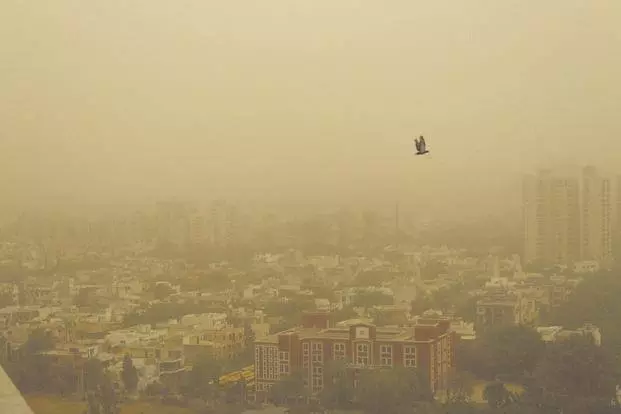
Kolkata, Mumbai join Delhi among top 10 most polluted cities globally
While Delhi as usual remains on the top, Kolkata and Mumbai have earned for themselves, respectively, fourth and eighth slots among the cities with the worst air quality

Amid worsening air pollution, and concerns associated with it, Mumbai and Kolkata, India’s two most populous megapolises, on Monday (November 13) joined the list of the 10 most polluted cities in the world, where air quality has reached “hazardous” levels, thanks to Diwali revelry marked by indiscriminate bursting of firecrackers.
Quoting data released by Swiss group IQAir, Reuters said Delhi, which almost always tops the list, reported an air quality index (AQI) figure of 420, putting the city in the ‘hazardous’ category. The city AQI reached an alarming 680 around Diwali midnight as a thick layer of smog enveloped it throughout Sunday evening, Reuters said.
However, the capital city of India was joined by Kolkata and Mumbai, respectively, earning themselves fourth and eighth place in the Swiss group IQAir's list of top 10 cities with the worst air quality.
The AQI in many parts of Kolkata breached the 250 mark on Diwali night, according to the data released by the West Bengal Pollution Control Board. The System of Air Quality Forecasting and Research (SAFAR), an air-quality monitoring system introduced by the Ministry of Earth Sciences, put Mumbai’s AQI, at 234, in the ‘poor’ category on its index.
When AQI stands at 0–100 on the index, it is considered good, when it is 100–200, it is moderate. When it slips to 200–300, it is considered poor. An AQI of 300–400 is said to be very poor and that of 400–500 or above is severe.
Alarmed by the worsening air quality in Delhi-NCR and Mumbai, the Supreme Court on November 7 banned firecrackers across states. “Celebration can be done only if you share what you have. Not by polluting the environment. If you do that, you are being selfish... These days it’s not the children who do it, but the elders are burning more crackers,” the top court had observed in its order. However the mandate was not followed either by the Centre or by state governments.
Air quality across India worsens every year with the onset of winter, as cold air traps emissions from industry and vehicles, dust from construction sites, and the thick smoke emanating from farm fires.
Every year authorities issue orders to ban both bursting of firecrackers during Diwali and stubble burning by farmers, which are considered major contributors to worsening air quality around these megapolises. But such orders remain on paper as both Diwali revelers and farmers turn a deaf ear to them.
With worsening air quality, hospitals in Delhi have seen an uptick in the number of patients, particularly children and elderly, with respiratory disorders.

